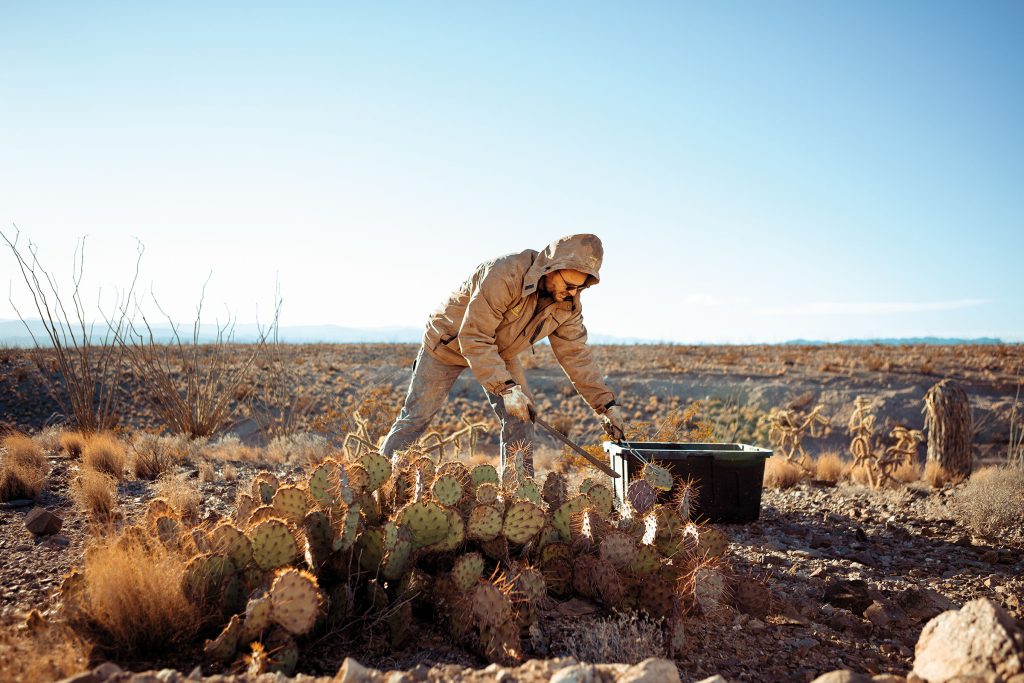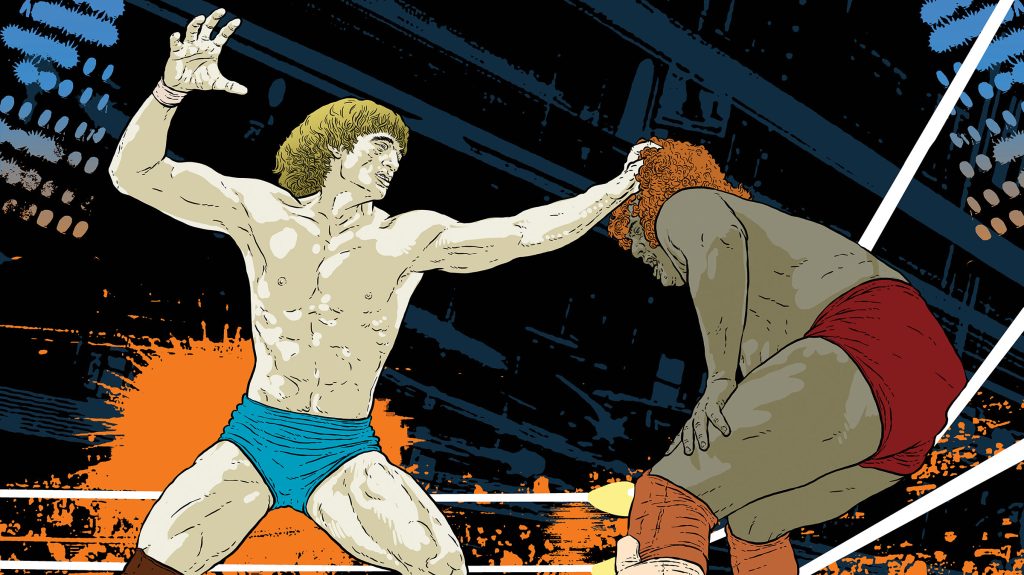
Former Utah Warrior Danny Christensen (holding ball) avoids a tackle last year against the Dallas Jackals. He was traded to the Jackals earlier this year. Photo by DFWZONEMEDIA | Mark Fann
The concourse of Choctaw Stadium filled with rugby fans as lightning illuminated the night sky over Arlington. It was halftime and the Dallas Jackals had been ahead of Old Glory DC for most of the May 6 match until the opposing team scored a last-second “try”—the rugby equivalent of a touchdown. With their team down 3-7, Jackals fans, decked in white and mint green “kits” (or jerseys) anxiously waited to see if play would resume. Minutes before, fans cheered as the team demonstrated their prowess. One could even hear the team itself shouting from across the “pitch” (the playing field) as the Jackals nearly kept their lead. Eventually, though, fans would end up having to mourn their team’s loss as the match was called due to the uncooperative weather.
Although the Jackals never returned to play that night, the passion of the fans was palpable. Nearly everyone waited until the announcement came before leaving the stadium. The unfortunate and unlucky loss didn’t sink the support of the fans, who have cheered on the Jackals despite the team winning only one match up to that point in the franchise’s two-year history. This love of sport and the camaraderie of supporting a local team should appeal to Texans looking for a placeholder for Friday night lights until next football season.
Rugby fans in Texas encourage curious football lovers to give their sport a chance. After all, it has become well-established in the state. Its main professional organization, Major League Rugby, headquartered in Dallas, launched in 2017 with seven teams, including the Houston SaberCats and Austin Elite (later to become the Gilgronis). The Jackals officially joined last year, and the league now has 12 teams. (Austin’s club left before the season got underway.) The regular season ends June 18, and the SaberCats have made the playoffs, which starts July 1.
Rugby is a natural fit for fans of football as the sport offers similar thrills. Opposing teams attempt to gain possession of the ball in order to score a try. However, unlike in football, where the action stops at the end of each play, the tackling and passing in rugby rarely pauses because play does not cease. This constant onslaught keeps spectators locked into the game, and those who enjoy the raw athleticism and physical contact components of football may find a game with few breaks enticing.
“If you really enjoy the hard hits and the action of the NFL or college football, you will probably also love the faster pace of rugby especially once you learn the rules,” Michael King says. “For a football state, it’s a natural entertainment source.” A Jackals fan, King is also on the board of directors of the Plano Rugby Club, which describes itself as “the largest youth rugby club in North Texas,” supporting boys and girls teams ages K-12.
The game itself is not too hard to follow, and many teams help with that. Newcomers attending a Jackals match for the first time aren’t left in the lurch on making sense of what happens on the pitch because a pregame hype video on the jumbotron offers a full rundown of rugby’s gameplay. Also, die-hard followers welcome the chance to explain the rules and intricacies of strategy if asked. Even the announcer during matches explains what each penalty means as opposed to assuming the crowd knows.
In essence, rugby combines the hard-hitting contact of football with the fast and consistent pace of soccer. “The object of the game is to place the ball over the try line with hands, not just breaking the plane [with the ball] like in football,” says Keith Hendon, the president of the Jakl Den, the Dallas Jackals fan club, which has around 2,500 members on Facebook. “That is worth five points. You can kick in a conversion for two.”
You can also score the equivalent of three-point field goals at different points in the game like in football. Teams pass, kick, and tackle while moving up and down the pitch. “You can’t throw the ball forward,” Hendon says. “You can kick the ball forward, but the ball must be passed behind you at all times.”
The athleticism of the pro players feels both familiar and foreign to a seasoned football fan. The players do not wear pads akin to football players even though it’s a contact sport. While tackles occur repeatedly, they are much safer because of strict rules. For instance, tackling above the shoulder is illegal. Passing happens, but it is only allowed if a player throws it behind them, which produces the motion of the teams back and forth across the pitch. This constant lateral passing of rugby recalls those legendary moments in football history where, in the final seconds of a game, a team returns a kickoff for a touchdown by tossing the ball backwards up to the endzone. The action never slows down.
“The appeal is that it’s ridiculously exciting to watch,” says Danny Christensen, who plays the role of scrumhalf for the Jackals. “So it’s a lot of high impact, exciting stuff to watch—a lot of the same reasons people love watching football, right?”
Speaking of appealing, the sport has star athletes. Christensen is one of a new crop of professional players in the country. Originally from Salt Lake City, he started playing in high school and played with the Utah Warriors before being traded to Dallas in February. Other rising stars include Sam Golla and Davy Coetzer, who play lock/flanker for the Jackals and flyhalf for the SaberCats, respectively.
In 2031, the United States will host the Men’s Rugby World Cup for the first time, with the women’s to follow in 2033, and rugby enthusiasts hope more people stateside will plug into the sport as that day approaches, both as fans and as players.
“I think rugby sometimes gets a bad reputation,” King says. “And quite frankly, it’s not that dangerous. It’s a contact sport, but my kids have been playing for six years and never had a serious injury.” Texas boasts numerous local rugby clubs for both amateur adults and youth. (You can find a list of local clubs throughout the state at Texas Union Rugby’s website.)
Beyond its appeal as a stand-in until next football season, fans of rugby proclaim its potential for the sport to be a unifier and place for camaraderie across social classes. “I’ve never seen a sport more inclusive in my life,” Hendon says. Rugby requires all body types for its positions and is played by both men and women. There is even a gay rugby league in the U.S., too, including Dallas’ Lost Souls and Houston’s Space City clubs.
“You know, for me that’s what makes the game,” Hendon says. “It’s just everyone’s involved. Everyone’s a part of it.”
Upcoming games in Arlington and Houston:
June 9: Houston SaberCats vs, Old Glory DC
June 10: Dallas Jackals vs. NOLA Gold
June 17: Dallas Jackals vs. Chicago Hounds
For tickets, go here.








